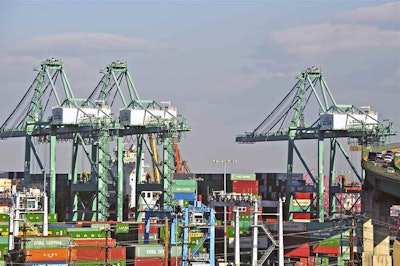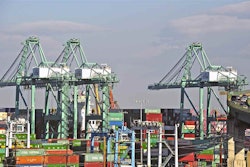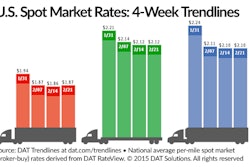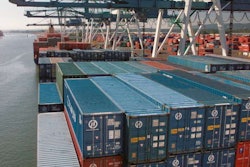 Port of Los Angeles
Port of Los AngelesSeveral of the 29 ports on the West Coast are taking measures to hasten the process of clearing the cargo backlog that’s built up in recent months due to strained and months-long labor negotiations between port managers and port workers.
Notably, the ports of Los Angeles and Long Beach have received clearance from federal regulators to address the congestion by increasing terminal activity, increasing chassis availability and decreasing truck turnaround times.
The Federal Maritime Commission voted unanimously to green light the ports’ plans, based on a two-year-old agreement that dictated the ports would exchange information on projects with multiple stakeholders. The FMCS determined the ports’ proposal would not unreasonably reduce competition or transportation services.
Experts have said the backlog at ports could take up to six months to clear, but the Port of Oakland says it should take about eight weeks to return to normal operation. The U.S. Department of Agriculture has heard the same from exporters.
Port congestion ramped up during the final months of negotiations between the Pacific Maritime Association and the International Longshore and Warehouse Union. On Feb. 20, the dockworkers union and the organization representing West Coast port employers reached a tentative five-year contract after nine months of talks.

The prolonged dispute between Pacific Coast port employers and labor resulted in collateral damage to companies nationwide. This was reflected in the Federal Reserve’s March 4 roundup of comments from business and other contacts in the nation’s 12 districts.
The contract ratification process will begin when the Coast Longshore Caucus meets March 30 to April 3. If these 90 delegates decide to recommend the plan to the rank-and-file, the complete agreement will be mailed to members. The plan then will be discussed at local union meetings before members ratify or reject it at a secret-ballot election.









